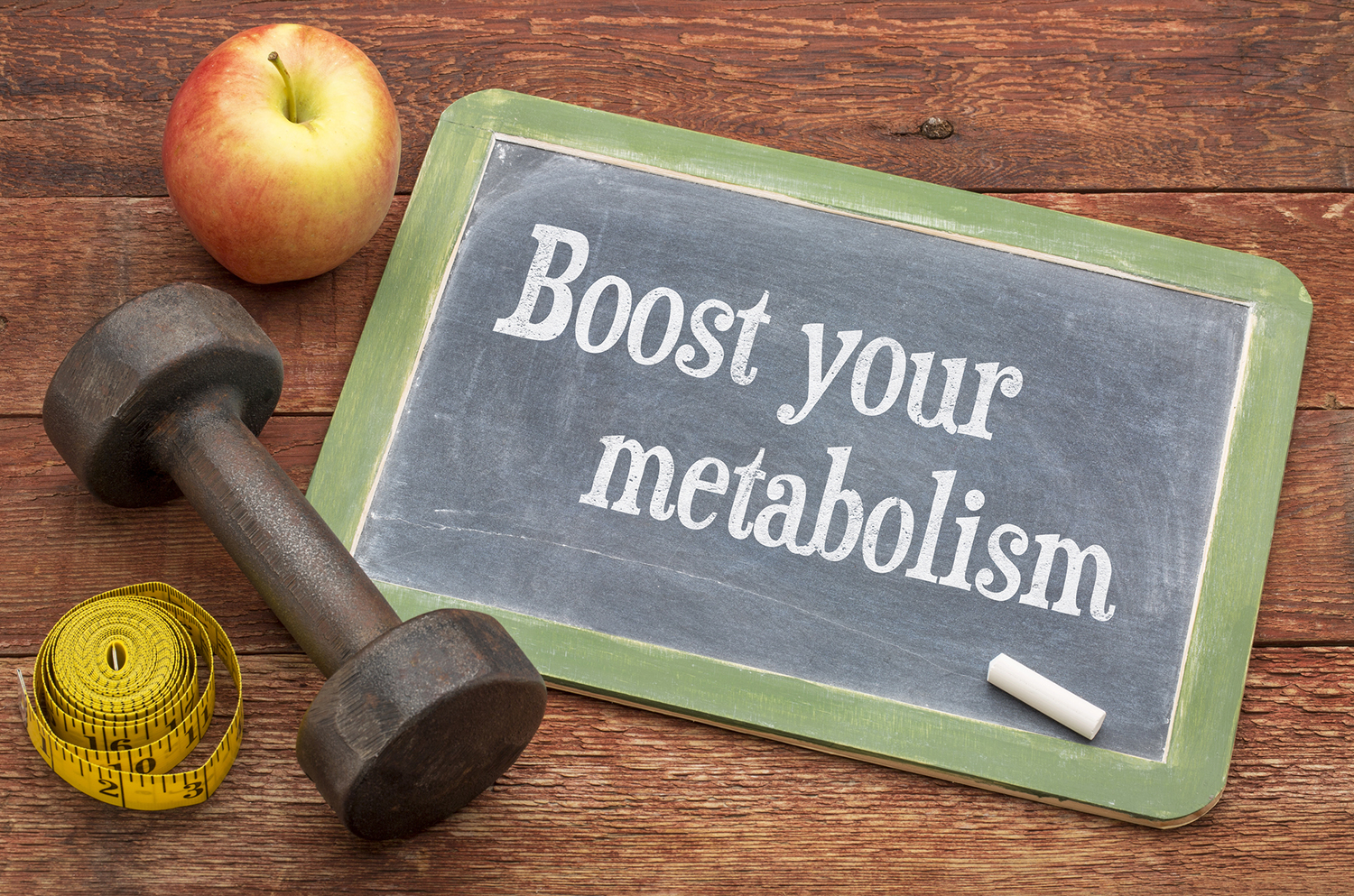Wondering what metabolism increasing foods are and how to boost your metabolism easily? Each person’s body is different and the same can be said for our metabolism. Metabolism is influenced by factors such as age, gender, physical activity, muscle-to-fat ratio and hormone function. Everyone has a Basal Metabolic Rate (BMR) which is the minimum number of calories required to keep organs and body functioning at their best.
Metabolism is a vital part of the body’s mechanism and provides us with the energy to breathe, circulate blood and to keep us alive. When we ingest food, chemical enzymes in our digestive system break down the food and convert it into energy. The energy, also known as calories, is either used immediately or stored by the body.
How Does Metabolism Work?
Our body, hormones and nervous system control our metabolism. When we ingest food, we have digestive enzymes to break down the protein, carbohydrates and fats into a form that our body can use for energy and growth.
During metabolism our body controls the process in two parts:
- Catabolism:
This is the breakdown of food (carbohydrates, proteins and fats) into simpler forms, which is then used as immediate energy by the body. The energy provides fuel for our muscles to move and to regulate our body temperature. - Anabolism:
This is the process of our body using energy to support the growth of new cells to maintain body tissue. It requires energy that comes from our food, and excess nutrients are stored as fat.
Understanding BMR & Waist Measurements
Your Basal Metabolic Rate (BMR) is the rate which your body burns energy (calories) while resting and accounts for approximately 70% of your total energy use. BMR is determined genetically, however it can also be affected by external factors such as physical activity, diet and health issues.
When we consume more energy than our bodies require, we begin to store energy as fat, which can lead to weight issues followed by chronic diseases such as type 2 diabetes, heart disease, stroke, high blood pressure and some cancers. While various BMR calculators are readily available, they are not always entirely accurate in determining your risks of chronic disease.
A simple and more effective way to assess your risk of developing chronic disease is to measure your waist and check where fat is placed around your body. Regardless of your height or build, if your waistline increases it’s a sign of increased health risks.
To measure your waistline just use a measuring tape. While breathing out normally measure your waist in line with your belly button. You are at increased risk of chronic disease if you exceed the following measurements:
- More than 94cm for males
- More than 80cm for women
There are ways to increase your metabolism and burn any excess fat and energy stored in your body, particularly if you exceed the above measurements.
5 Ways to Increase Metabolism
Regardless of age or fitness level, you can get your body to burn more energy, more efficiently. Here are 5 ways to jump start your metabolism:
- Consume More Protein
The body uses more energy to digest, absorb and process protein (over carbohydrates and fats) which in turn increases your metabolism. Metabolism boosting foods include lean protein sources such as seafood, poultry, eggs, yoghurt, lean beef or pork or a good quality protein powder. More information on how to choose a quality protein powder is included below. Protein also helps you feel fuller for longer which can prevent you overeating. - Drink Cold Water
The benefits of drinking water far supersede any other beverage. It will help to flush out any toxins, can help you feel fuller for longer and will keep your body hydrated. If you drink cold water, your body uses energy to heat it up to body temperature, which is a great way to increase your metabolism. It isn’t recommended to drink cold water within half hour either side of meals, as heat is required for adequate digestion, and too much fluid can dilute your digestive enzymes. - Exercise
Simple exercise such as walking, swimming, or running can help increase your metabolism, and the best part is it will continue to be effective even after your workout has finished. If you’re able to increase the intensity for 30 second intervals and return to your normal speed, interval based exercise helps you work harder and consume more energy. - Lift Weights
Boosting your metabolism isn’t just about eating the right metabolism increasing foods. Lifting weights is not just for body builders. Muscle mass helps you burn more calories even when you are resting. - Quality Sleep
Sleep deprivation has a negative impact on your metabolism and increases the risk of obesity. Lack of sleep affects basic metabolic functions and alters the metabolism of glucose and hormones, which are required to regulate and maintain a good BMR.
Choosing a Quality Protein Powder
As mentioned, protein is necessary to support muscle growth and repair which in turn helps to jump start your metabolism. Finding a good quality powder can be confusing, so here are some things you should be mindful of:
- A protein powder should contain 20g per serve and very low carbohydrates (<1-3g per serve).
- Should not include artificial sweeteners such as Saccharin and Aspartame. Look for those with natural sweeteners such as Stevia.
- It needs to contain the complete amino acid profile of essential and non-essential amino acids to be able to be utilised effectively by your muscles.
- Choose a powder that has sprouted and/or fermented protein for added benefits.
- Protein powders can be used as occasional meal replacements, and a half dose can be used as a snack.
Two of my favourite retail brands are Vital Protein and Amazonia Raw. Be sure not to replace more than one meal a day, and don’t forget to include lots of leafy green vegetables into your diet. If you’re pregnant, it’s important to consult a naturopath or other health professional before making any significant changes to your diet.
I hope you have a better understanding of metabolism increasing foods, metabolism and how to increase it. It’s important to always support your body and its vital functions with well-balanced nutritious food and exercise.
As a trusted pregnancy naturopath based in Brunswick, Melbourne, I have a wealth of experience including the development of webinars for health practitioners, implemented evidence-based antenatal guidelines at the Royal Women’s Hospital and successful IVF support to numerous couples.


1 Comment